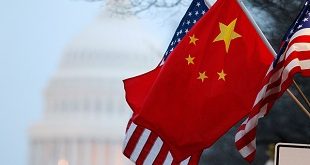
It seems that the economic system we operate in was never designed to grow indigenous wealth. It appears to have been designed only to keep the economy alive while keeping real power insulated.
COMMENT | APOLLO BUREGYEYA | Some of our Indian colleagues in Uganda are misreading the room. They mistake their business success here for exceptional acumen, when in truth, they’ve benefited from a system designed to favour them. It’s a blend of distorted policy, weak enforcement, and quiet privilege. It’s wings not won, but gifted.
My thinking is that the structures they exploit would collapse in any country with strong institutions. Let them try the same tricks in China, and the syndicate would be shut down before the rent agreements are signed.
But there’s a deeper peculiarity in our country that we must ultimately face. It seems that this system we operate in was never designed to grow indigenous wealth. It appears to have been designed only to keep the economy alive while keeping real power insulated. And if I am correct here, then you know why aliens are thriving in government business.
Foreign investors might largely be preferred not just for their capital and skills (what’s unique about building a road), but because they don’t vote, don’t organize politically, and don’t disrupt the political order. In other words, they’re a safe space. And they generate data to show that the economy is healthy, which image the system would want to project. Ugandans with wealth, on the other hand, might ask tough questions. That makes them inconvenient.
But we’re a resilient people that are proving to be undeterred. We are consistently conquering business territories back, with grit, and all fair play, especially where government has relatively less influence. Take supermarkets, for example. Thirty years ago, the retail sector was Indian-dominated. Today, Ugandans own every major supermarket chain and mall, Capital Shoppers, Mega Standard, Akamwesi Mall, etc. That’s not aid. That’s indigenous capability.
This post is not about race. It’s about truth and policy fairness. Indian-Ugandans have done well. But the idea that they’re inherently better at business is a myth
The next falling is the hospitality front. From Fort Portal to Entebbe, Ugandans are taking over. We’re acquiring Hilton and Marriott franchises, building and running high-end hotels with no syndicates or shady deals.
This post is not about race. It’s about truth and policy fairness.
Indian-Ugandans have done well. But the idea that they’re inherently better at business is a myth, and one that has served political and economic elites for far too long. Its a myth more that it creates a lot of disadvantages for capable Ugandan industrialists.
I won’t even go into syndicating in our commerce that goes unchallenged. Ugandan transporters lining up for cement at an Indian owned cement factory only to be loaded after the Indian brothers have been exhausted.
I felt I should dismiss this myth. Ugandans have done more with less. What we need now is a policy that trusts us not just to trade, but to thrive.
Let’s stop underestimating ourselves. Let’s stop whispering our wins.
The future is Ugandan, not because we’re favored, but because we’re ready.
Because we’re good enough. Because we already are!
*****
 The writer is an engineer, entrepreneur and industrialist. THIS COMMENT WAS ADAPTED FROM X @ApolloBuregyeya
The writer is an engineer, entrepreneur and industrialist. THIS COMMENT WAS ADAPTED FROM X @ApolloBuregyeya
 The Independent Uganda: You get the Truth we Pay the Price
The Independent Uganda: You get the Truth we Pay the Price



